![]()
AI image generators are trained on millions — even billions — of photos. It is safe to assume the vast majority of these photos are copyrighted and used without permission.
And while there are billions of photographs, only a handful can be labeled as iconic. With that in mind, PetaPixel wanted to find out how easy or difficult it is to recreate celebrated photographs.
Methodology
To test this, I employed arguably the two best-known AI image generators: DALL-E and Midjourney. Using the latest version of each model (DALL-E 3 and Midjourney v6), I attempted to recreate some of the world’s best-known photographs.
For the most part, I avoided the photographer’s name, the subject’s name, or the photograph’s name (OpenAI’s DALL-E 3 wouldn’t let me use people’s names anyway, however, on Midjourney I could use whatever names I wanted).
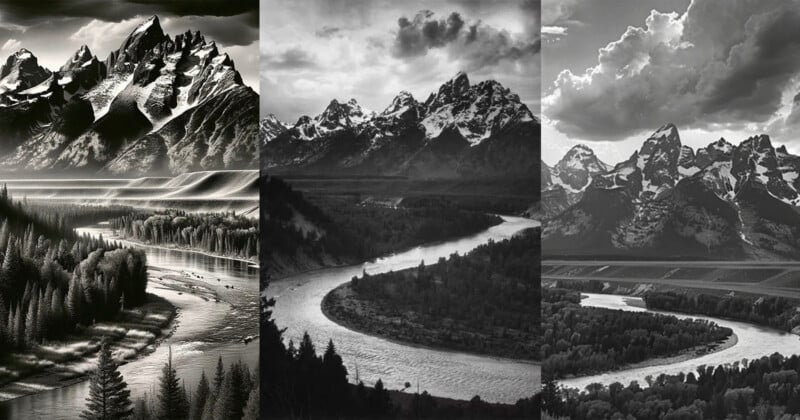
I didn’t over-engineer my prompts and I kept my number of attempts at recreating a picture at two. Most of the pictures below are from one prompt without any tweaking. I also (mostly) kept the same prompt for both Midjourney and DALL-E, but Midjourney gave me four options while DALL-E only offers one, so I chose the best Midjourney offering.
DALL-E 3 is available on the latest version of ChatGPT (which is where I used it) and Midjourney is available via a Discord server. ChatGPT has over 180 million users (although not all of them will use DALL-E) and Midjourney is estimated to have around 17 million users.
Recreating Famous Photos With AI
V-J Day in Times Square
Although now considered controversial, Alfred Eisenstaedt’s capture of a spontaneous kiss between two strangers is possibly the most famous photo of all time. Taken in Times Square, New York in 1945 during Victory over Japan Day and the effective end of World War 2, both DALL-E and Midjourney made recognizable versions of the photo.
Prompt: Make a black and white photorealistic image from 1945 of a sailor kissing a white-clad girl as they celebrate in Times Square, New York.
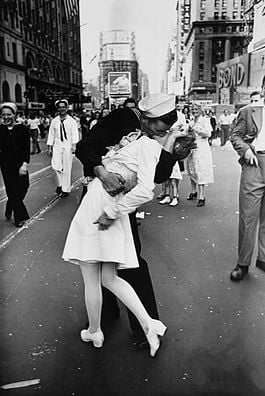
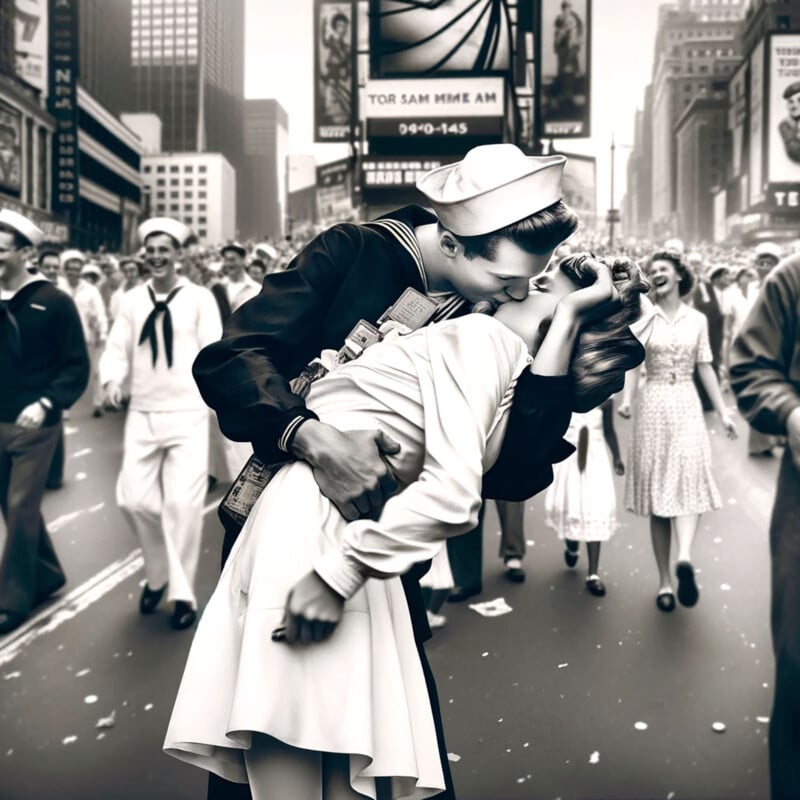
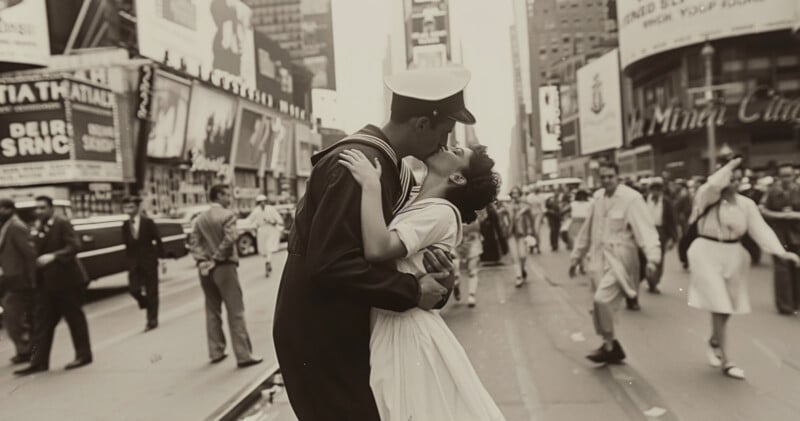
Abbey Road
Regularly topping “most iconic album covers of all time” lists is Iain Macmillan’s photo of The Beatles walking over a zebra crossing outside Abbey Road studios in London. Safe to say, the AI didn’t nail this one.
Prompt: Make a photo of four caucasian males walking through a crosswalk on a suburban street in London in 1969. The man furthest right is wearing all white and has long hair and a beard. The man second from the right wears a black suit. The man second from the left wears a blue suit, holds a cigarette, and doesn’t have shoes on. The man on the left is wearing double denim.
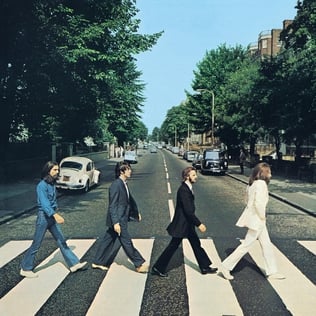
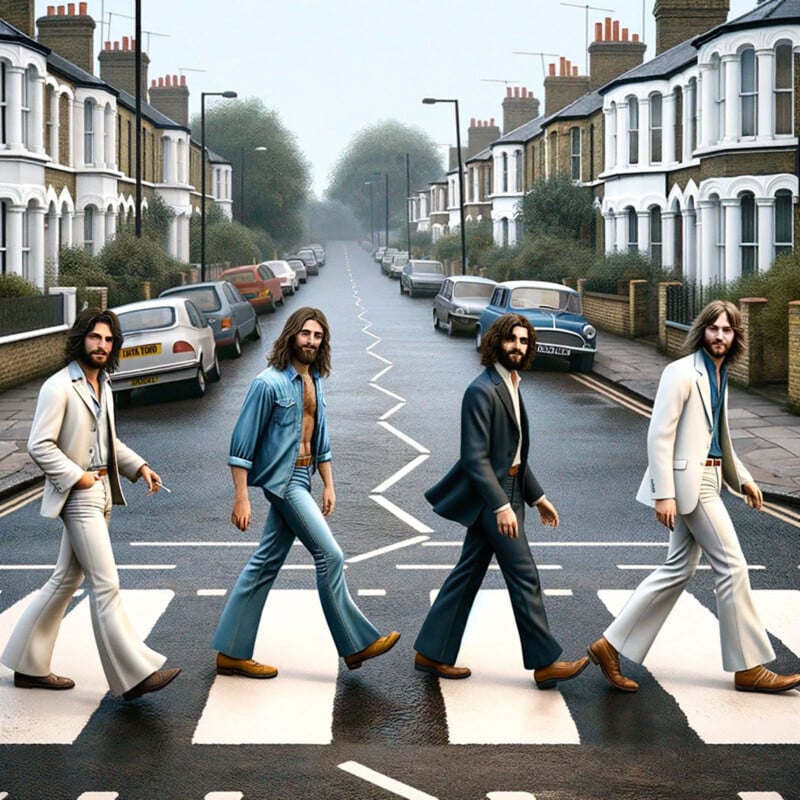
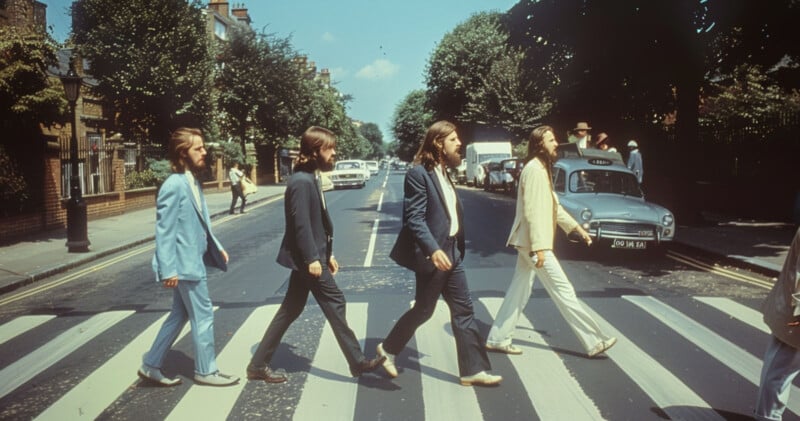
Migrant Mother
Midjourney created a very recognizable version of Dorothea Lange’s defining image of the Great Depression but, predictably, the result is let down by the appearance of hands.
Prompt: Make a photorealistic black and white image of a migrant mother looking into the distance with her two children burying their faces, 1936.
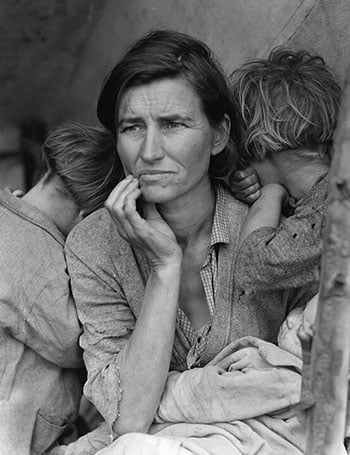
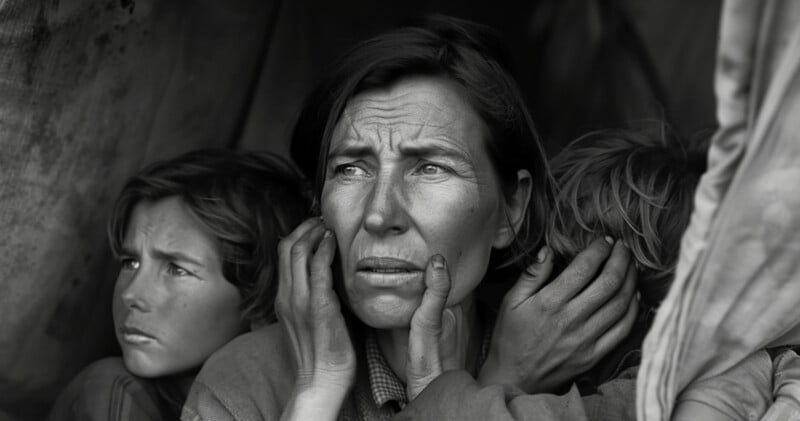
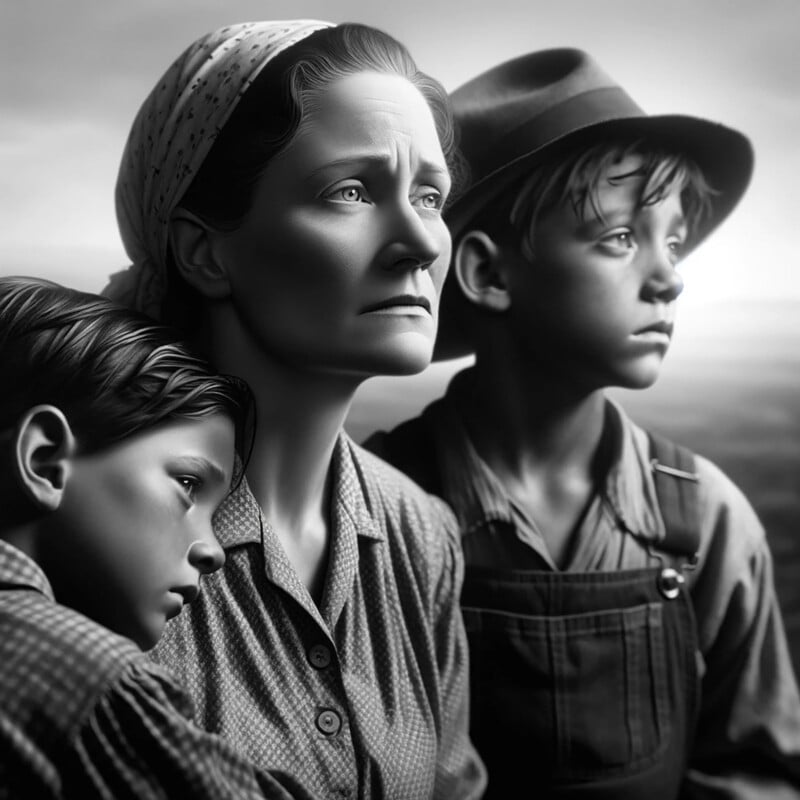
Lunch Atop a Skyscraper
The author of this iconic photo is famously unknown, but both of the AI image generators had no problem making a version of it.
Prompt: Make a black and white film photograph taken in 1932 of 11 ironworkers eating lunch while sitting on a steel beam above New York City
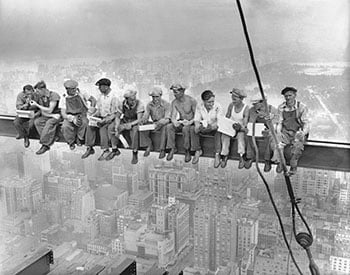
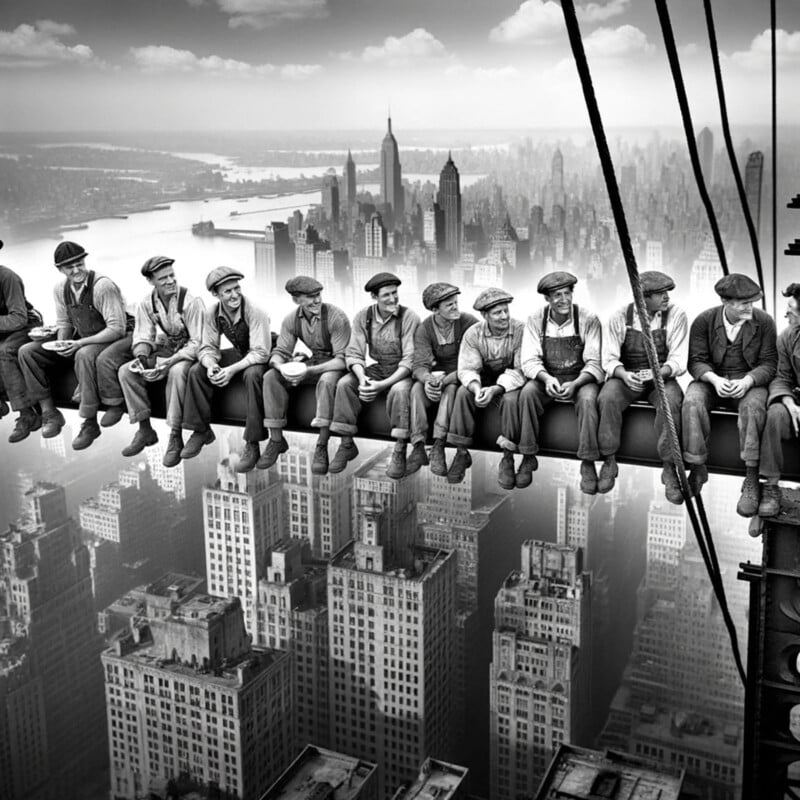
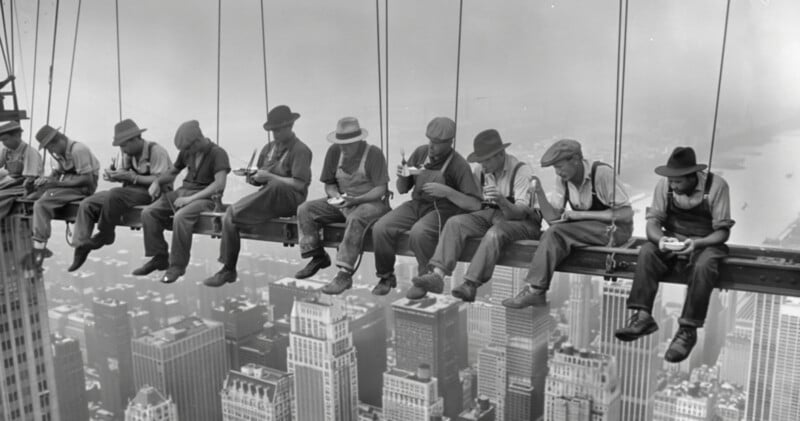
The Tetons and the Snake River
Without telling the AI image generators the author’s name, both of them did an uncanny job of reproducing arguably Ansel Adams’s most famous photo.
Prompt: Make a dramatic black and white photo taken in 1942 of the Grand Teton National Park in Wyoming. The Snake River is in the foreground with mountains in the background.
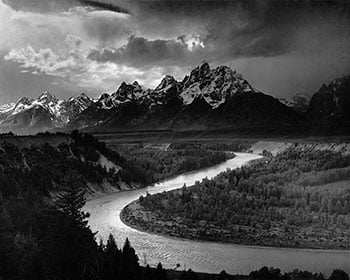
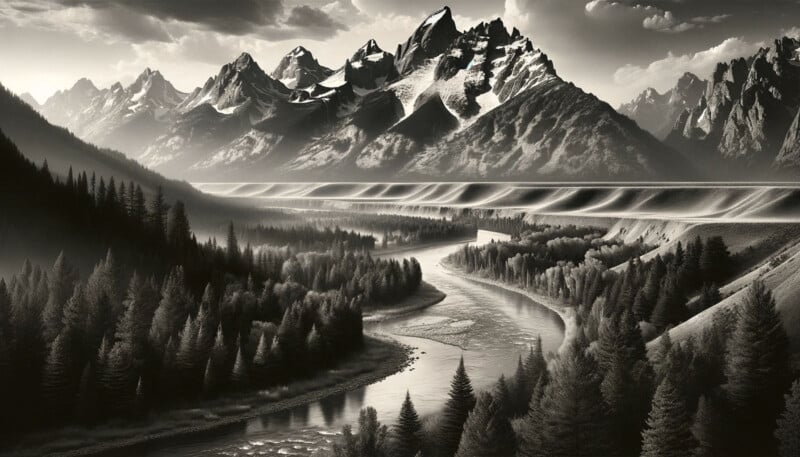
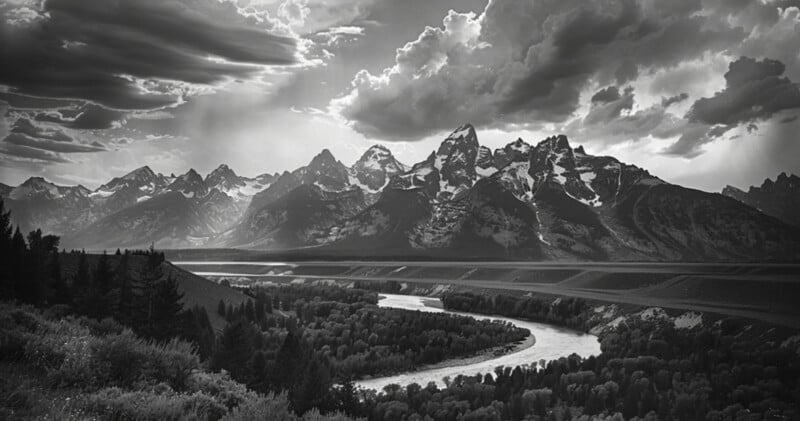
Afghan Girl
DALL-E and Midjourney had a very different take on Steve McCurry’s iconic photo that graced the front cover of National Geographic with Midjourney’s attempt far more realistic. This was the only prompt that I included the brand of film the photo was captured on.
Prompt: Make a color photograph taken in 1984 on Kodachrome 64 color-slide film of an Afghan girl looking at the camera. The photo shows the head and shoulders of the girl who is wearing a red scarf draped loosely over her head and she has green eyes.
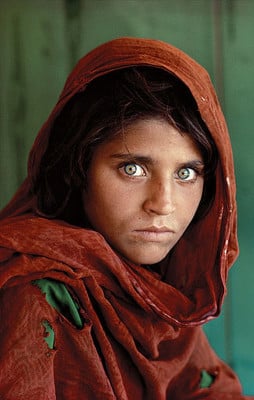
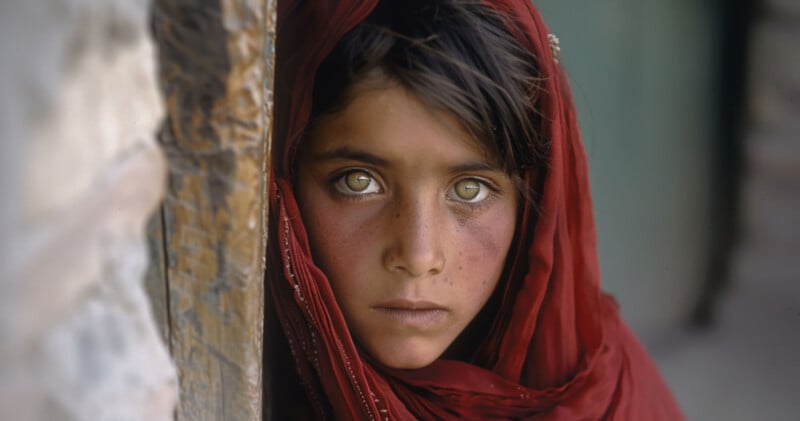
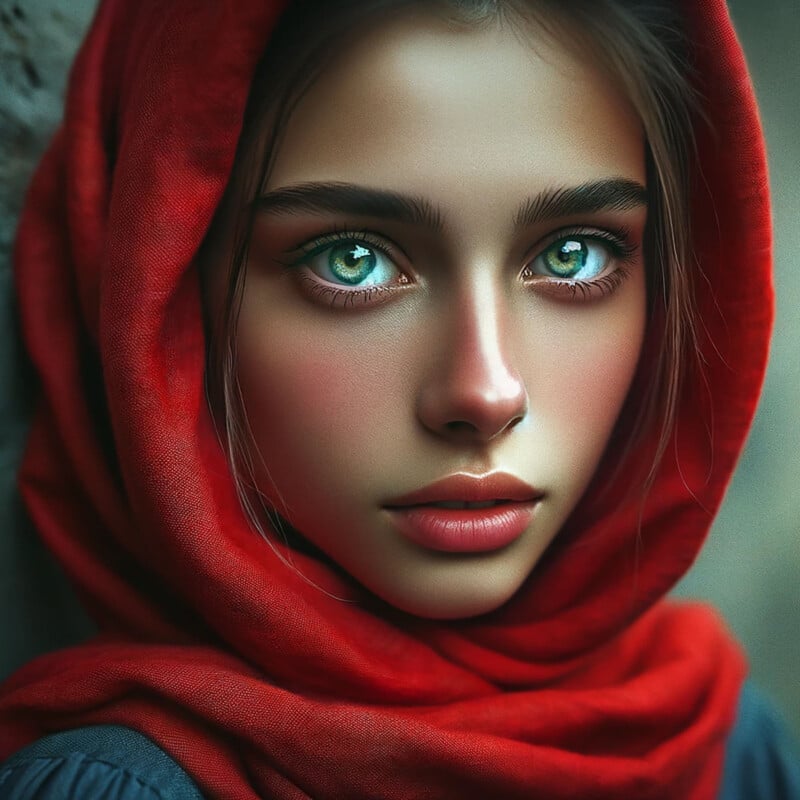
Raising the Flag on Iwo Jima
DALL-E got the soldiers from Joe Rosenthal’s Raising the Flag on Iwo Jima in near-perfect alignment but both generators gave a recognizable version.
Prompt: Make an iconic black and white photo taken in 1945 of six United States Marines raising the U.S. flag atop a mountain
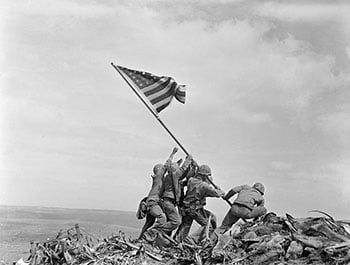
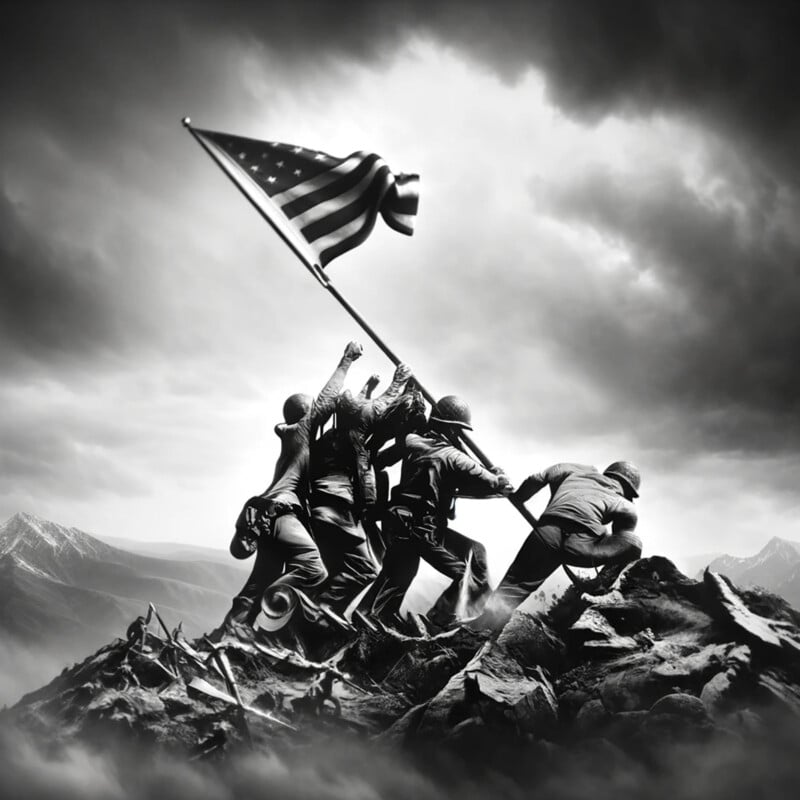
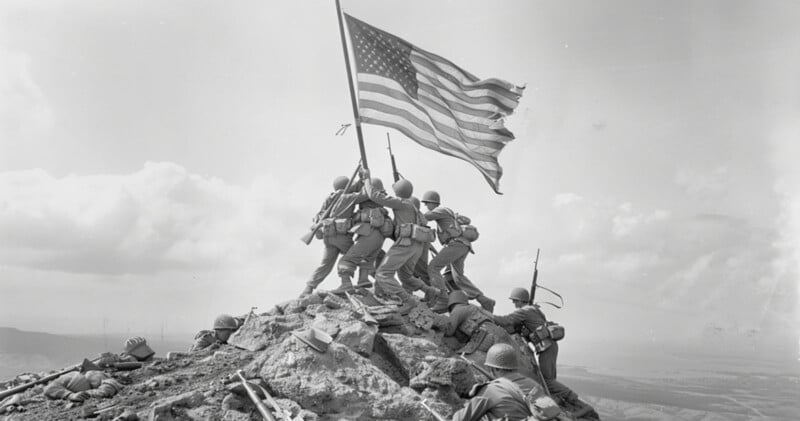
Behind the Gare Saint-Lazare
I used two different prompts for this one. Both programs turned out a comically bad attempt at recreating Cartier-Bresson’s The Decisive Moment.
DALL-E Prompt: Make a photorealistic black and white image of Behind the Gare Saint-Lazare, taken in 1932.
Midjourney Prompt: Make a photorealistic black and white image of Henri Cartier-Bresson’s iconic photo of a man jumping over a puddle that captures ‘the decisive moment’.
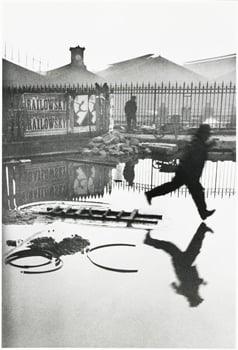
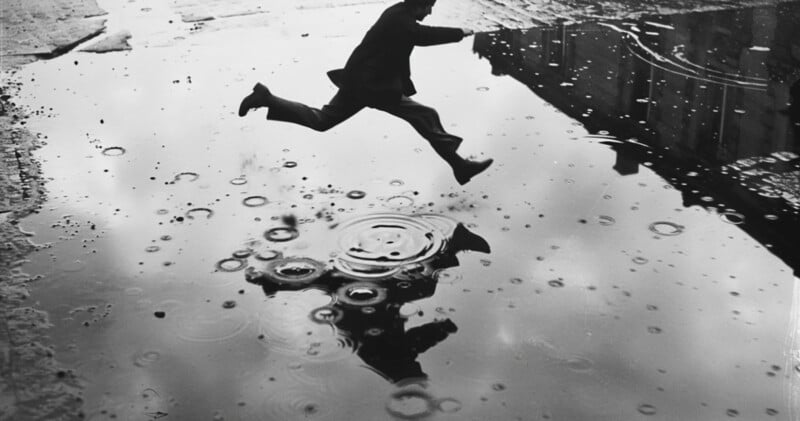
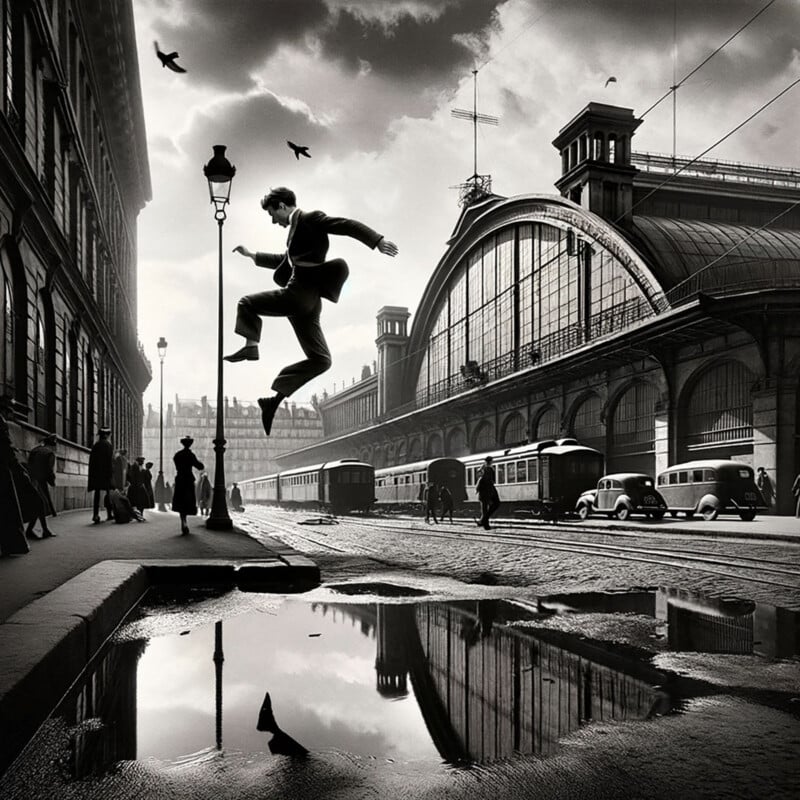
Muhammad Ali Stands Over Sonny Liston
Again, I used two different prompts. DALL-E rejected a request for Muhammad Ali’s name.
Midjourney Prompt: Make a photorealistic image of Mohammad Ali standing over Sonny Liston having just knocked him down in a boxing match, 1965.
DALL-E Prompt: Make a photorealistic image of a legendary boxer standing over an opponent having just defeated him in a boxing match, color film photograph, 1965.
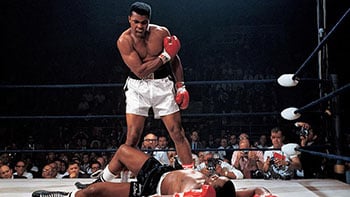
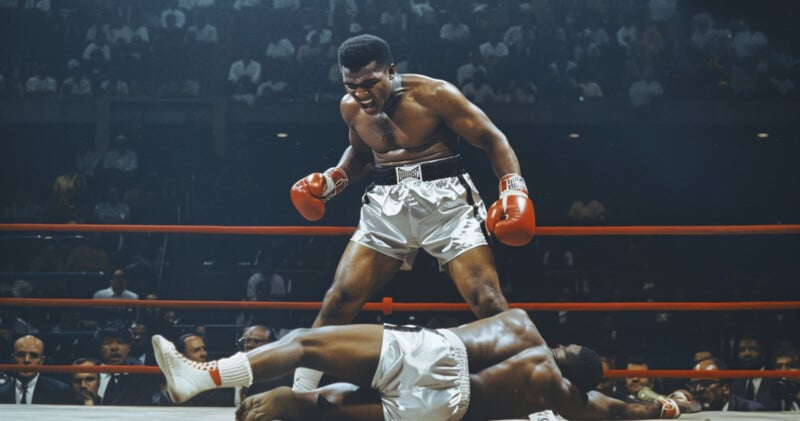
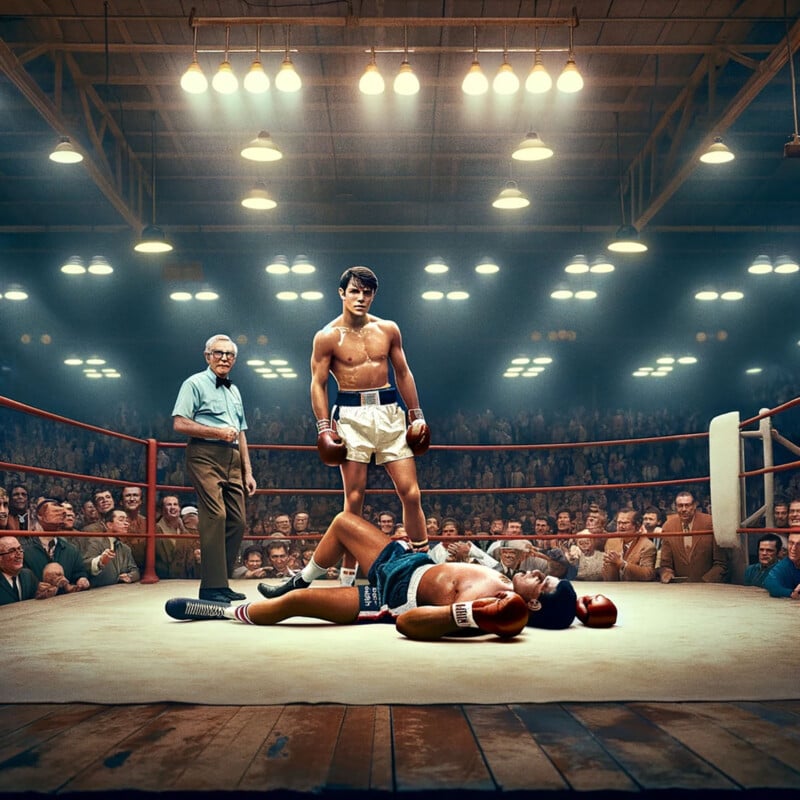
Earthrise
William Anders captured what has been described as “the most influential environmental photograph ever taken” during the Apollo 8 mission. Midjourney got kind of close but I have a suspicion these would have come out better had I included the year in the prompt.
Prompt: Make a photorealistic image of an Earthrise that was taken from the surface of the Moon with some of the surface in the foreground of the picture. Make the Earth far away and partially obscured by the blackness of space.
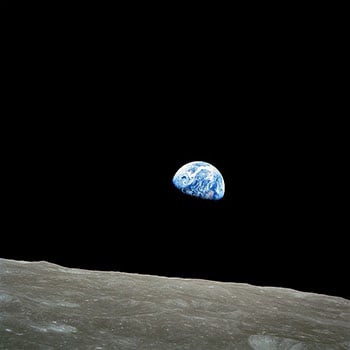
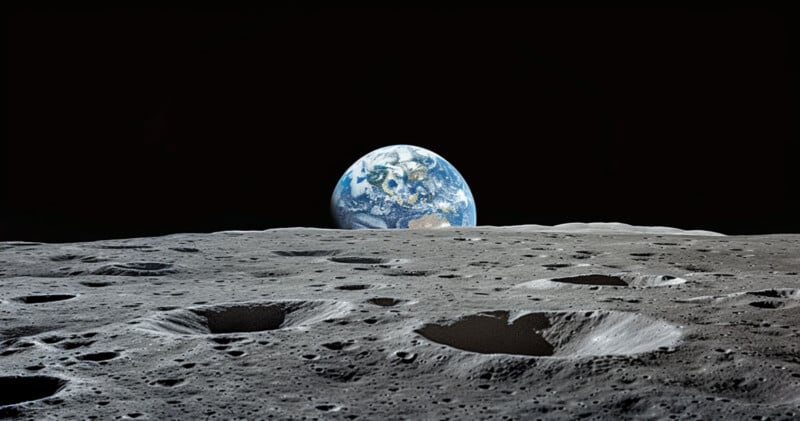
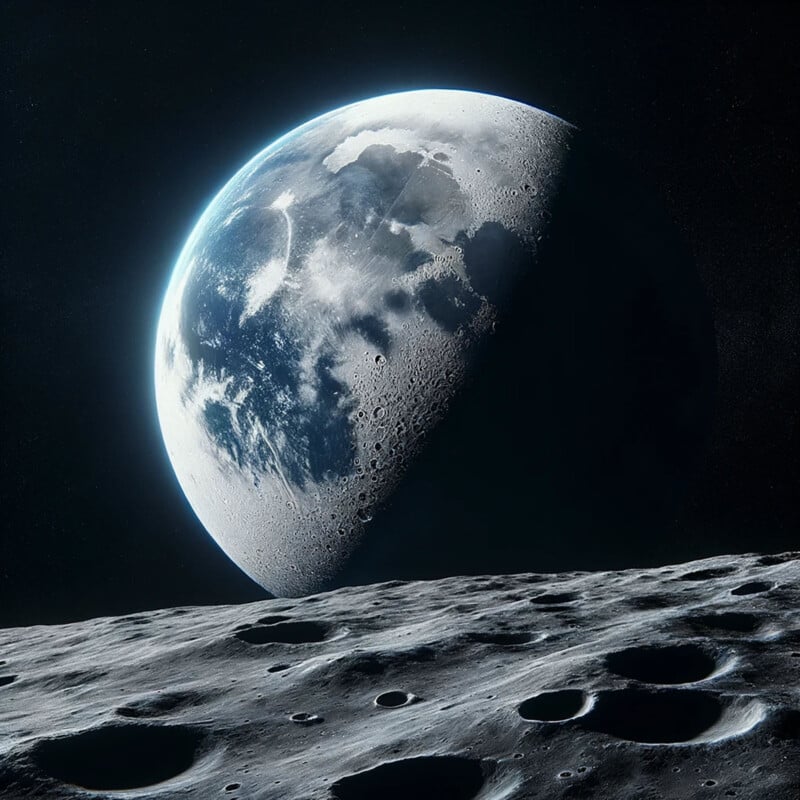
Shell-shocked US Marine
Probably one of the lesser-known images on this list and perhaps it shows that both models produced totally different images to Don McCullin’s Vietnam War photo.
Prompt: Make a black and white photojournalist image of a shell-shocked US Marine taken in 1968.
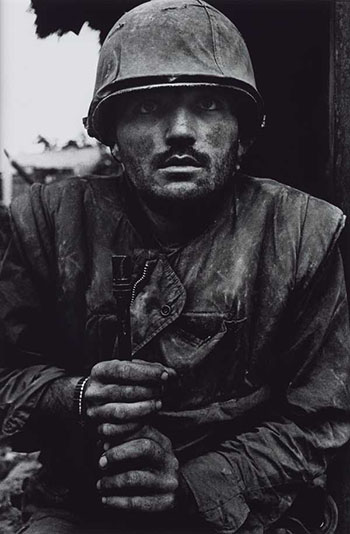
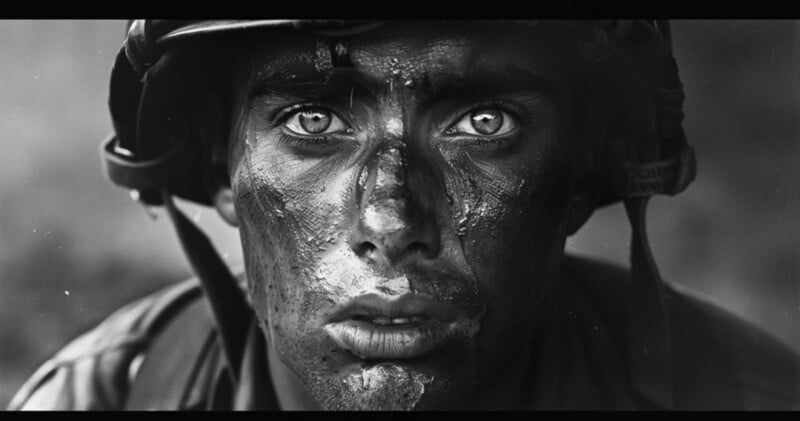
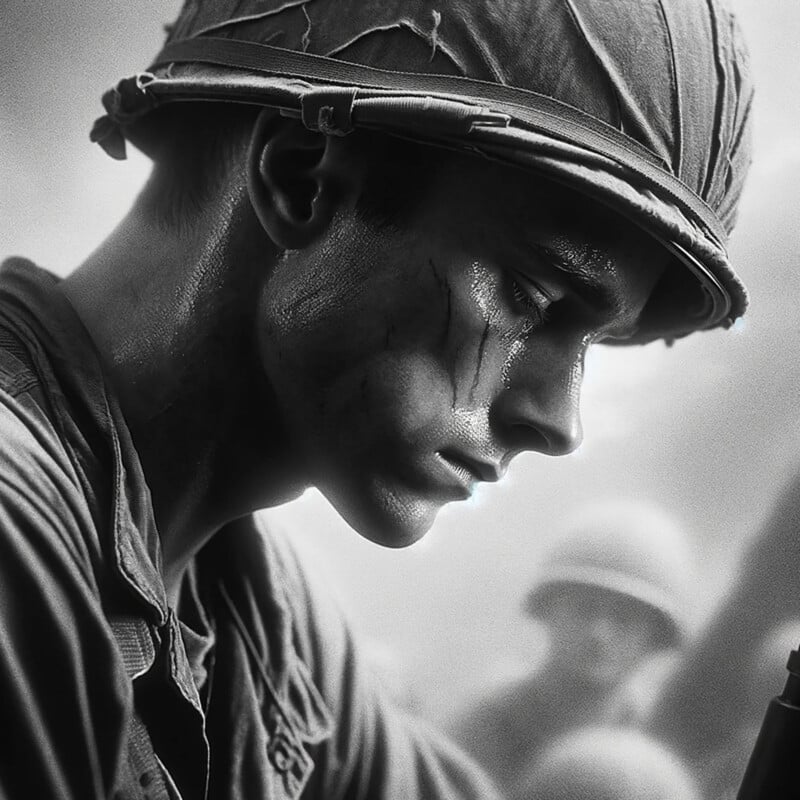
Where Does This Leave Us?
None of the AI images above are perfect recreations of its intended photo (Although Midjourney’s Afghan Girl by Steve McCurry comes scarily close and we were all really impressed with the tonality of the Muhammad Ali image). The way Midjourney can match the tone and feel of an image is awesome and frightening. Out of the two, Midjourney is much more photography-like. DALL-E was more hit and miss, often producing more obvious fakes.
I always expected that it would be fairly straightforward to recreate the photos with AI since the training data for these models will be filled with an untold number of versions of these recognizable pictures.
But what may surprise some is just how easy it is. I’m no expert at generating AI images and yet, for the most part, it took me just one attempt and a couple of minutes to recreate a photo that was taken at the hands of a master photographer.
Clearly, the AI is intellectually problematic. The AI does not know that it is recreating a famous photo so closely yet that’s what it’s doing.
OpenAI is actively trying to prevent users from this type of copyright infringement (if it even is an infringement) but this test shows it’s too easy to get around right now.
In my opinion, these AI images cannot be considered art and are brazen copies of pictures created by people who worked extremely hard to become virtuosos of their craft.
In the coming years, AI copyright issues will be decided by the courts. My hunch is that it’s unlikely the burgeoning AI industry will be handicapped by the authorities. There is simply too much buzz and it is already taking hold.
I reckon we will have to learn how to live with this technology.
